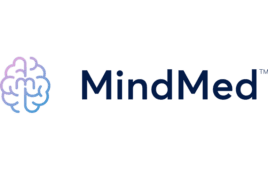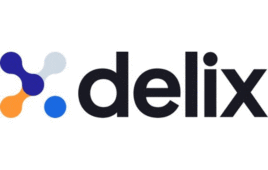
[Image courtesy of Pixabay]
Although the field remains embryonic, part of the reason for the recent interest in psychedelics is their potential to address difficult-to-treat mental health conditions. For example, research such as the U.S. government-backed Sequenced Treatment Alternatives to Relieve Depression (STAR*D) study “showed us that our available medications are not as effective as we’d hoped they would be,” said Dr. John Krystal, chair of the department of psychiatry at Yale University, in a recent webinar from Cybin (Toronto, Canada). For depressed who respond to selective serotonin reuptake inhibitors (SSRIs), it can take an average of two months to see an improvement. “And then, people who obtain a response have a high likelihood of relapsing over time,” Krystal said. “The unmet need in mental illnesses like depression is tremendous.”
Recent interest in ketamine for treating depression has stoked interest in new, faster-acting approaches for treating mental disorders. “Ketamine was the drug that made us all begin to think there might be different ways of treating disorders like depression and addiction,” said Dr. David Nutt, Head Centre for Psychedelic Research in the Division of Brain Sciences at the Imperial College London, in the Cybin webinar. Some depressed patients who receive ketamine see quick improvements.
The recent uptick in research and growing regulatory support for classic psychedelics and psychoactive drugs known as empathogens or entactogens, including MDMA, could lead to a sea change in psychiatry. The ability to lift depression quickly could be “the biggest innovation in psychiatric research and clinical practice since the 1950s when both antidepressants and antipsychotics were discovered by serendipity,” Nutt said. “I think we’re on the cusp of a new, very exciting wave in terms of the treatment of many mental disorders.”
Classical psychedelics and entactogens appear to show positive results for major depression, alcohol use disorder and substance use disorders.
The question of public hesitancy
The fact that classical psychedelics have been illegal in much of the world for roughly 50 years presents a challenge. “It is important we educate regulators,” Nutt said. Some regulators may have unconscious resistance to authorizing psychedelics.
There will also need to be an “interplay of the regulatory agencies like the Drug Enforcement Agency that’s involved in scheduling the drug and the FDA in the United States that would approve the drug,” Krystal said.
While there is now considerable clinical trial data related to MDMA and psilocybin, both remain Schedule 1 drugs, which means they are illegal and the DEA believes they have no medicinal value.
Then there’s the fact that a portion of the public thinks psychedelics were correctly banned, believing they are dangerous and addictive. “People need to understand that the banning was largely a political decision rather than a health decision,” Nutt said. “I believe that banning these drugs in the 1960s and 70s has led to 50 years of censorship of research,” he added. “I think that’s the worst censorship of research in the history of the world.”
It may be challenging to free psychedelics from their connotations with the 1960s. “Knowledgeable psychopharmacologists have said to me, ‘But of course, these people are getting better from psilocybin because they’re having a fun trip,'” Nutt said.
That’s a mischaracterization, however, Nutt said.
“Our experience is that depressed people have what we call ‘challenging trips,’ he said. “They’re not lying around having fun. They’re not floating down the river looking at marmalade skies, as per the Beatles. They’re struggling with memories of trauma and damage to their lives imposed by others and also problems that they’ve created in other people through their behavior.”
Addressing the potentially high cost
Psychiatrists who are optimistic about the prospect of psychedelics and drugs such as MDMA tend to believe they should be administered with significant patient support, including psychotherapy. The need for that support could translate to a substantial cost. But if such drugs can continue demonstrating a “powerful impact on remission, the regulators will be extremely receptive,” Nutt said.
Depression has a significant drain on the economy. According to the Center for Workplace Mental Health, an estimated 6-7% of full-time U.S. employees experienced major depression (MDD) within the past year. Therefore, reducing the rate of depression and other mental health disorders would have “a huge economic value to society,” Nutt said.
Before that dream becomes a reality, psychiatrists and other mental health workers could need significant new training. But it may not be as challenging as some pundits imagine, according to Nutt. “I think that, certainly, the majority of psychiatrists are good psychotherapists,” he said. Psychedelics also have the potential to heighten rapport between patients and psychiatrists. “I think many psychiatrists will see psychedelics as being a way of magnifying their ability to perform the psychotherapeutic role with patients.”
Another way to potentially reduce costs is to use compounds with shorter half-lives than traditional classical psychedelics. “Up until now, I think most people have assumed that at least a moderate duration of a psychedelic effect would be necessary to have a benefit,” Krystal said. Timing is part of the reason for the interest in psilocybin over longer-lasting compounds such as LSD. Krystal argued that shorter-acting compounds [including DMT (dimethyltryptamine)] could produce comparable effects. “If it turns out to be true, then it will be even more revolutionary… DMT might press a kind of reset button in the brain to produce equally good effects.”
Neuropsychopharmacology recently published a study on the use of injectable DMT in healthy volunteers and those with major depressive disorder. Those with depression had significant reductions in symptoms, while adverse events were mostly mild. Psychedelic effects in the study lasted between 20 and 30 minutes. “Further rigorous trials are warranted to replicate these findings and to determine the durability of antidepressant effects,” the study abstract concluded.
Nutt said that he believes psychiatrists can provide the “backbone” of psychedelic therapy without employing hundreds of thousands of specially trained psychologists and other therapists. “However, it may be that the need outgrows even the psychiatric community.”
If the sector does prove to be a staffing challenge for psychiatrists, group settings could help manage the need, Nutt envisioned. “That’s traditionally how these drugs have been used in indigenous cultures,” he said. For example, the traditional Amazonian psychedelic ayahuasca has been around for thousands of years, and “it’s almost always done in group settings.”
Incorporating a group dynamic into psychedelic integration therapy, including support groups, could also help safeguard mental health. “We know that social support is a hugely powerful factor in keeping people well in protecting people against the stresses of life,” Nutt said. “Social integration and social communication are vital for optimizing human performance.”
Filed Under: Psychiatric/psychotropic drugs





Tell Us What You Think!
You must be logged in to post a comment.